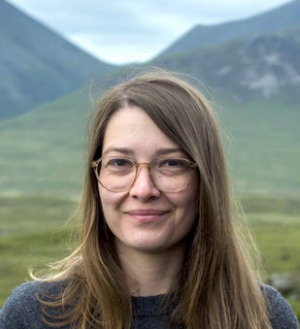Emergence of reproductive citizenship: the rise of infertility consciousness and activism in Britain
Presented by: Yuliya Hilevych (University of Lincoln) ; Discussant: Fabrice Cahen (Ined)
Résumé
‘Just as people have the right to choose in having an abortion, couples like us must have a chance to have children’. This was a reaction by Peter Houghton, the founding member of the National Organisation for the Childless (NAC), to the 1977 ‘host mother’ case. This case opened a controversial discussion about surrogate motherhood in Britain after a childless couple made a private arrangement with a prostitute. NAC emerged as a grassroots community-based support group in Birmingham, which in 1976 became a national network supporting childless people. In 1991, it was reformed as ISSUE, and it subsequently merged with CHILD to form Infertility Network UK (2003); late renamed as Fertility Network UK (2016).
In this paper, I focus on the emergence and early work of NAC between the mid-1970s and the 1990s. I analyse published and radio materials by and about NAC, and interviews with its former members and affiliates. By taking a perspective of new social movements, I illustrate that NAC emerged as part of health activism centred on identity politics. My argument is that NAC positioned itself as a crucial player in lobbying for the rights of infertile couples with a view to overcome childlessness, especially following the invention of IVF (1978) and privatisation of fertility care. As such, NAC facilitated the emergence of a specific mode of reproductive citizenship, which aimed at preventing infertility leading to childlessness. In this talk, I problematise this mode of reproductive citizenship as produced by NAC, and forms of inclusion and exclusion it entailed.
Biographie

Dr Yuliya Hilevych is a historical sociologist with expertise in demography and public policy. Her primary areas of interest are gender, health, social relationships and inequities, and she is especially interested in the study of uncertainty, justice and solidarity around biological and social reproduction, and how these are shaped by population, health and environmental policies.
She is currently a Senior Lecturer and Deputy Programme Leader for Sociology at the School for Social and Political Sciences at the University of Lincoln. Previously, she was a British Academy Newton International Fellow under the mentorship of Professor Simon Szreter at the University of Cambridge. Yuliya is also an affiliated scholar at the Reproductive Sociology Research Group (Cambridge), Fertility and Reproduction Study Group (Oxford), NIDI (The Hague) and the Radboud Group for Historical Demography (Nijmegen).
Yuliya is currently writing her book on the emergence of infertility and childlessness activism in the 1970s and 1980s Britain, and she is also editing a volume ‘Low fertility variations in the past and present: Studies in Compositional Demography’ with Dr Philip Kreager.
